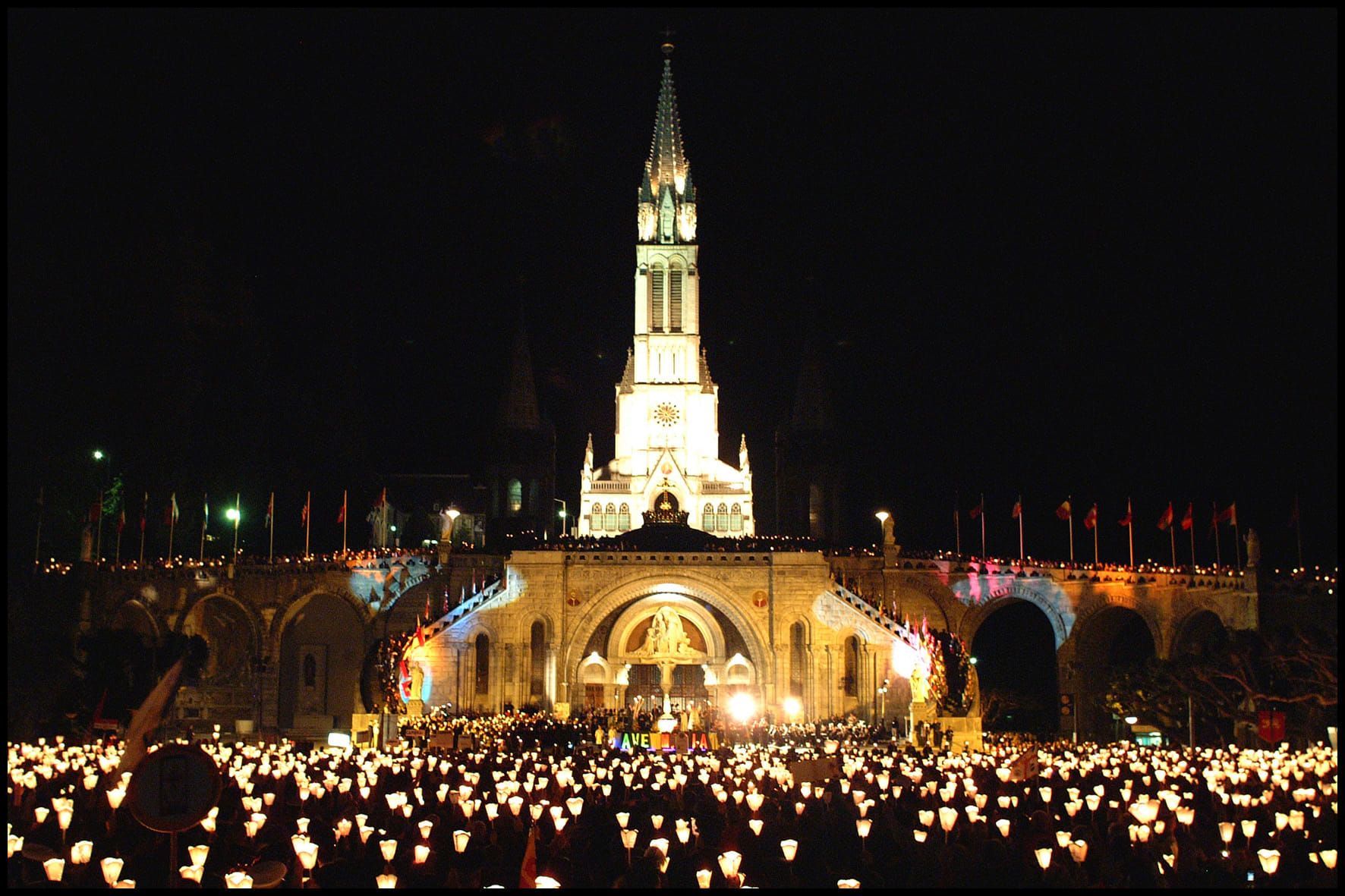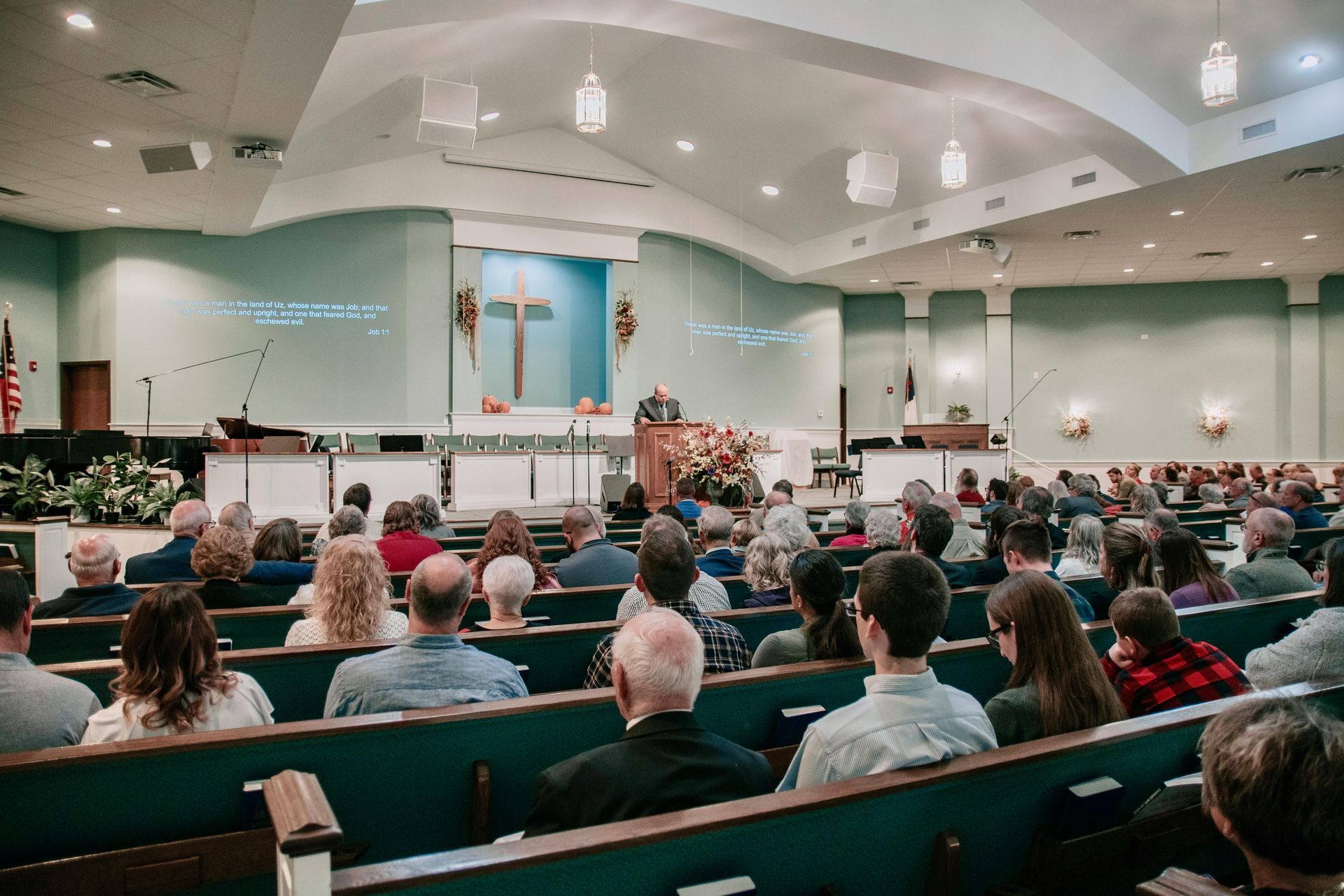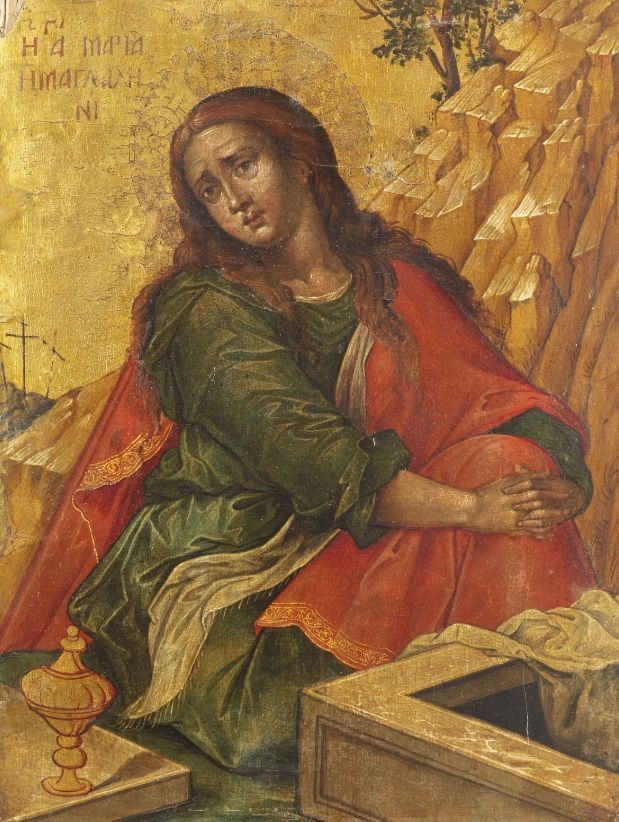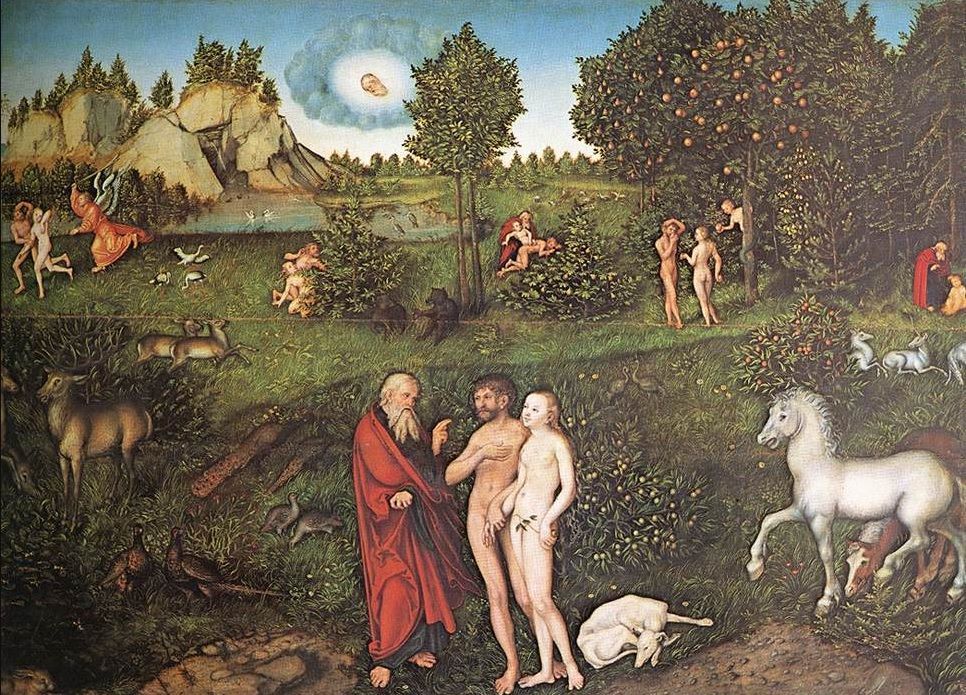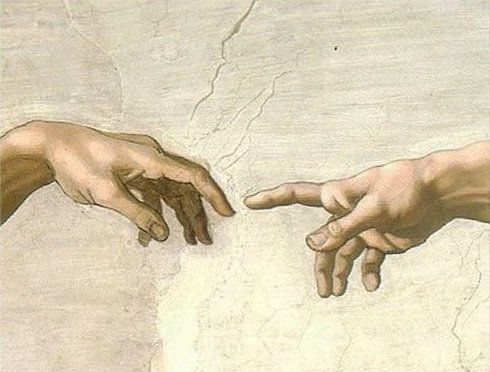The Real Presence
The Eucharist - A Classroom Discussion
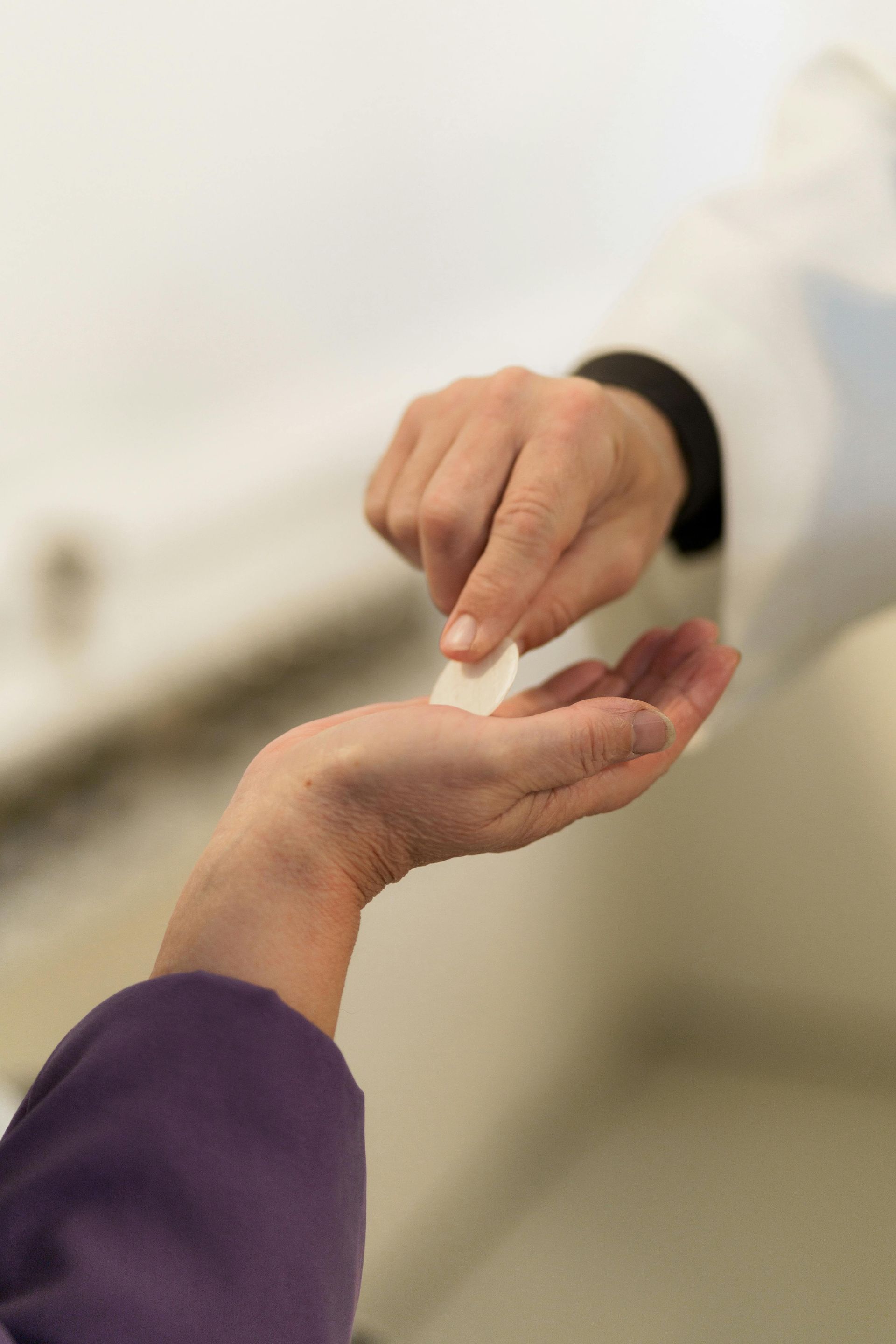
Picture yourself in a Catholic classroom of 14-year-olds. The students have been asked to imagine they are on a bus going to visit someone at the hospital. Are they nearer to the person alongside in the bus or to the loved one in the hospital? They have no doubt: to the loved one in hospital. Why, they are asked.
They find it easy to explain that your heart brings you closer to people than mere physical proximity does. You would hardly notice or remember a fellow passenger, they agree, because you would be thinking of the one at the hospital – or other thoughts, maybe.
They have grasped an essential idea: physical presence is less important than other forms of presence – emotional, spiritual, personal. They accept they are “personally” present to a loved one, even if a distance away.
Suppose the hospital were twenty miles away? Makes no difference, they say. Suppose it’s the other side or end of the country? They laugh. Suppose the loved one who is ill is the other side of the world? A girl cries out “Oh, don’t be silly, Father. It doesn’t matter how far away or near. You don’t measure love by distance!”
So you love people the same no matter how far away they may be? The students have no doubt. You love someone the same whether in the next room, the next town, the other side of the world? Yes. And the other side of death?
They laugh with delight. They have already told themselves that love knows no distance and now they see they have decided that not even death separates. You love because you love. Alive or dead, they acknowledge, the loved one is in your heart.
I tell them of Victor Frankl and his wonderful moment of freedom, in the horror of a Nazi concentration camp. He suddenly knew that all the cruelty and horror around him could not take away the truth of his love for his wife and her love for him; and even though he did not know if she were alive or dead the truth stayed the same: their love for each other was invincible and nothing could take it from him.
The class was silent. They had glimpsed adult truth, young as they were. I told them of Frankl’s wonderful book, “Man’s search for Meaning”, and knew some of them would immediately want to read it.
Love makes us present to each other wherever we may be. Distance, death, do not lessen that love. They were ready to begin to explore Eucharistic sacramental love – which is not physical (“in the bread”), nor emotional (“a feeling of oneness or friendship”), nor even spiritual (“a remembrance of the Last Supper”) – but is personal, the sign of the fullness of God’s love in the Eucharistic bread and wine. Love transforms bread and wine into the body and blood of Christ, and Christ is truly present in a personal way that we call sacramental – the bread and wine the sign, Jesus the inner reality. They questioned . . .
Imagine a bookshop, I suggested. Ten copies of a particular book that you know your friend (or brother, sister, mother, father) would like are on the shelf. You take one and begin to change it: it is going to be a gift. You hold it carefully, knowing the love with which you’re going to give it, and you imagine the love and happiness with which it will be received. The book will be transformed by your love and their love – to become gift. Before ever it is read – and even if it is never read! – the book is gift. Love has changed it.
Our students are intense. They recognise this truth. They have all seen it. Love can make something small, and apparently of little value, into something beautiful for ever: a gift treasured, a gift remembered; something for ever, even when it is worn out or lent and not returned – or even stolen! Only the book is worn out or lost – the gift lives on in the hearts of the one who gave and the one who received. It is for ever.
They knew. The bread is so small and so simple. But in the hands of Jesus it became (becomes) gift, a total giving in love. “I give you myself as I give you the bread (and wine)” he said. The perfect gift, bread transformed by love to become the love of God made visible – “the outward sign of inward grace” says the old catechism.
The students talked of how beautiful a gift love can make anything, no matter how small or apparently trivial. Love transforms an object into something forever and that gift will never cease to be, even though the item fades away (or the bread and wine are consumed). The gift is for ever.
You can imagine the further questions. The celebration of mass as the Last Supper – the same miracle! The priest speaks Jesus’ words, obeying in faith “Do this in memory of me”, and we receive the Eucharist in that same memory. They wondered about non-believers taking Holy Communion. They couldn’t, they saw. Unbelievers would not see the love of God, but only bread and wine. And if a dog ate the consecrated host, a boy asked, hesitatingly not flippantly: was it Holy Communion?
Did the sacramental presence cease, they asked, for unbelievers, for animals and in other circumstances? If the host fell to the ground, on mud, was spat out of the mouth accidentally – was Jesus still present? If a priest said the words of consecration outside the celebration of mass, would Jesus become present? No, to that, straight away. The words of consecration spoken by the priest, the placing of his hands over the bread and wine whilst asking God to send the Holy Spirit upon this bread and wine, are only effective in the celebration of mass. The words of consecration are not powerful of themselves, they are not magic: the words belong only within the celebration of mass, when believers gather to do as Jesus did at the Last Supper.
They understood. The invoking of the Holy Spirit, the words of consecration, are the Church at prayer – as were Jesus and his disciples. The priest cannot speak as for himself but only as sharing in the priesthood of Christ. What he does, he does in the name of the Church – takes bread, blesses, breaks and gives – as Jesus did at the Last Supper.
Bread becomes food when it is eaten. If it is not eaten it was not food. The students saw the difference between bread and food. They saw the sign of bread as the food of life, knew Jesus’ title as the “Bread of Life” when received in Holy Communion. Thus they had answered the question about the host that fell to the floor, or was spat out, that was impossible to eat: it was not food, so the sacramental presence of Jesus ceased, just as bread ceases to be food if it cannot be eaten.
They saw the love of reserving the sacrament in the tabernacle – to be taken to the sick at home and in hospital: the “waiting Lord” ready for the frail members of the Mystical Body; and they saw the consequent reverence of praying in the presence of the Blessed Sacrament. A beautiful logic featured for them in the questions and answers; and they saw they had answered their own question about the unbeliever.
Just as a thief cannot steal the book-gift, but only the book; just as a borrower cannot borrow the gift but only the book; so the gift always stays with the one to whom it was given. The believer who understands the gift of the Eucharist receives the gift, whilst others receive only the bread. The sacramental presence of Jesus is not physical, it is personal. It is love.
Jesus is present in love to all who accept him, and supremely in the sacramental sign of bread and wine. He chose to make himself present in (the giving of) the gifts of bread and wine at the Last Supper.
The students wanted to explore the difference between Jesus being present in the gifts of bread and wine and being present in the giving of bread and wine. We had reached the Reformation! Now they would begin to struggle with words like transubstantiation, transignification, transfinalisation. I sensed the heaviness. The beauty of Jesus’ giving of himself in bread and wine, the beauty of giving ourselves in any gift we make, the wonder of being present in love to anyone in any part of the world, the wonder of the Communion of Saints when love passes through death into eternity . . . Such beauty and wonder, they saw, can be reduced to a slanging match of theologians and believers as to “who is right?”
Dear Lord, we thank you for the Eucharist (“Thanksgiving”), for your personal love for each of us, for the gift of love in every gift, for the gifts of sacrificial love in the bread and wine of the Last Supper and Calvary.
© Fr John Daley IC : Watermead
